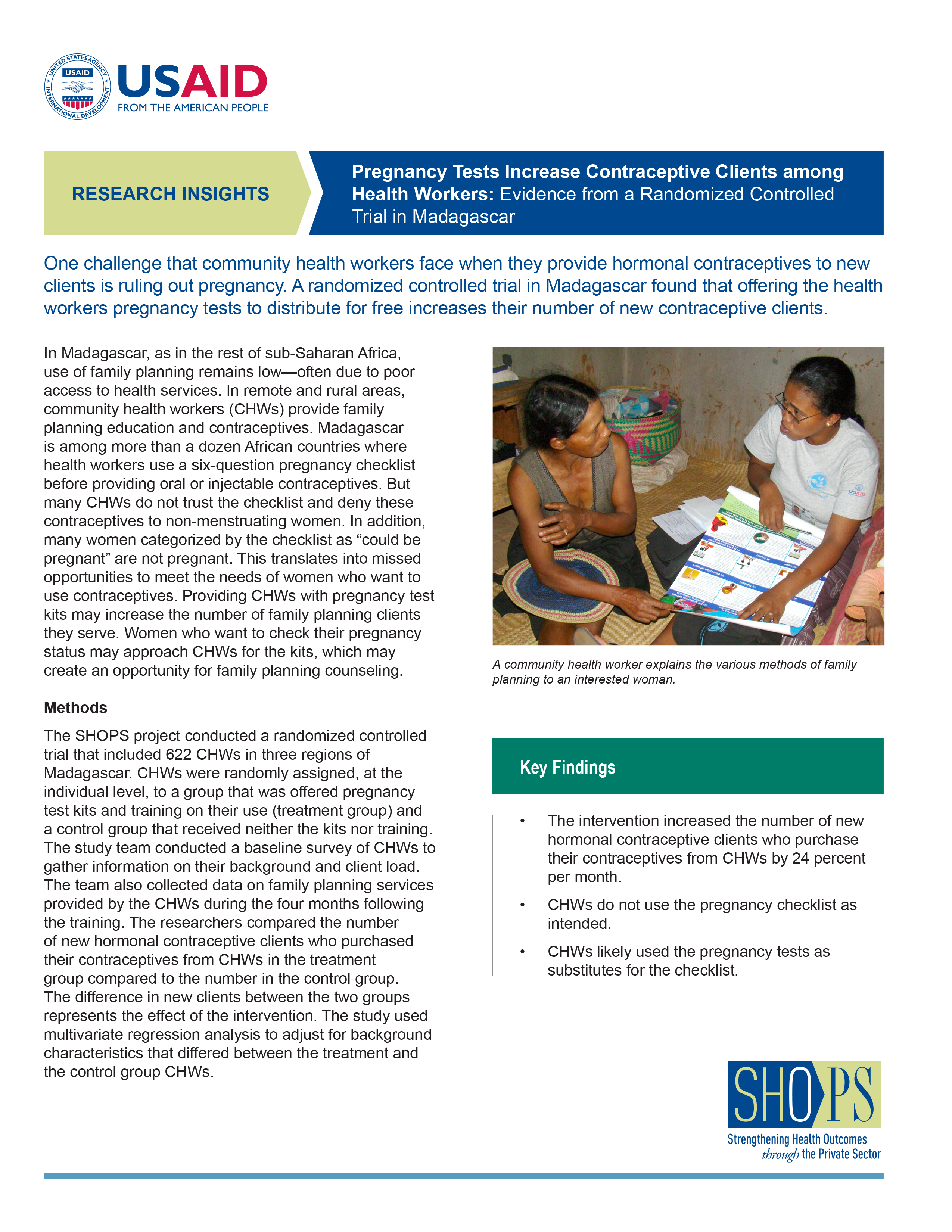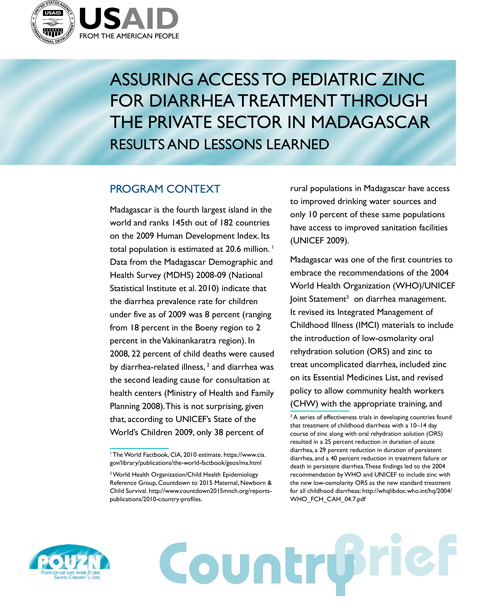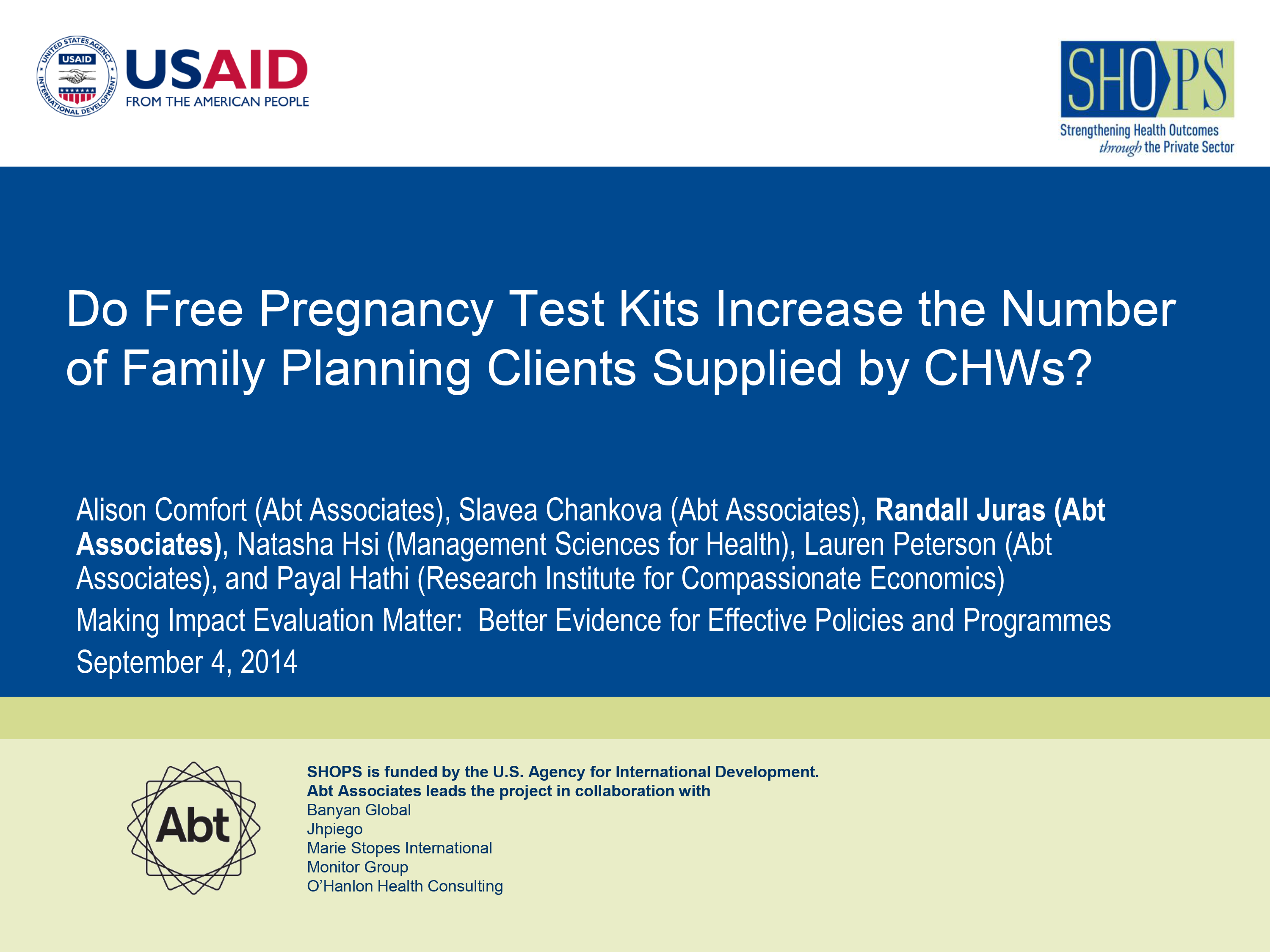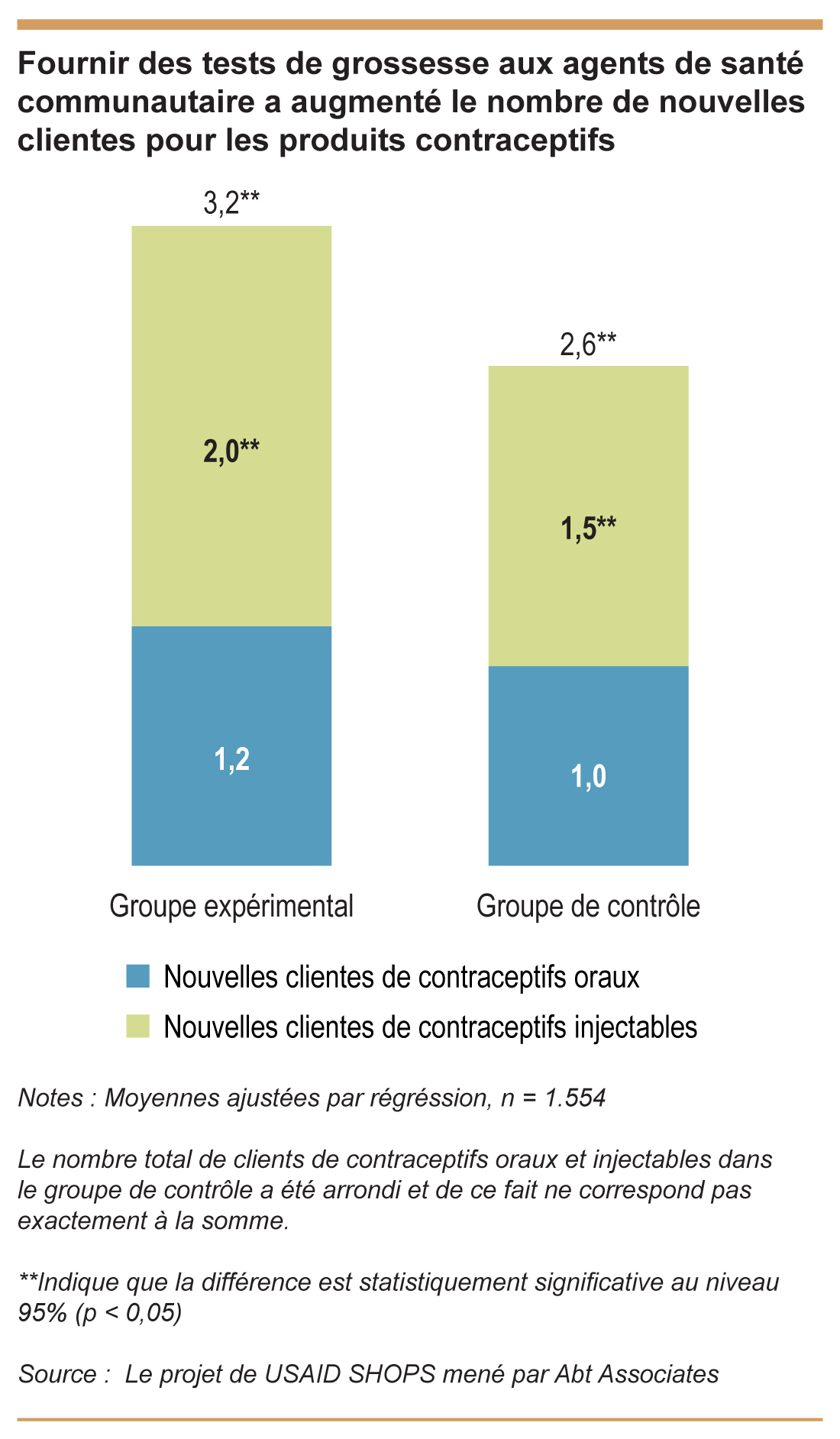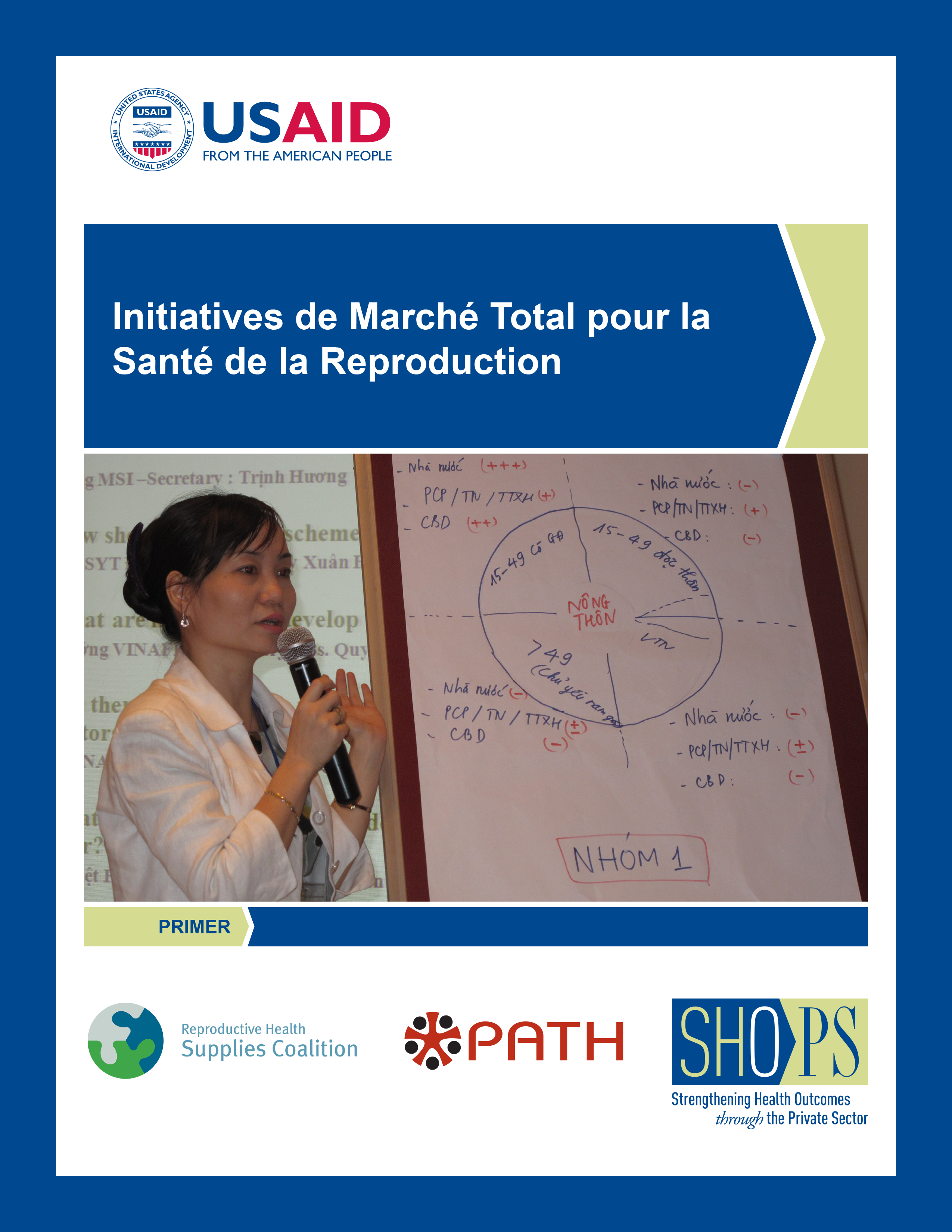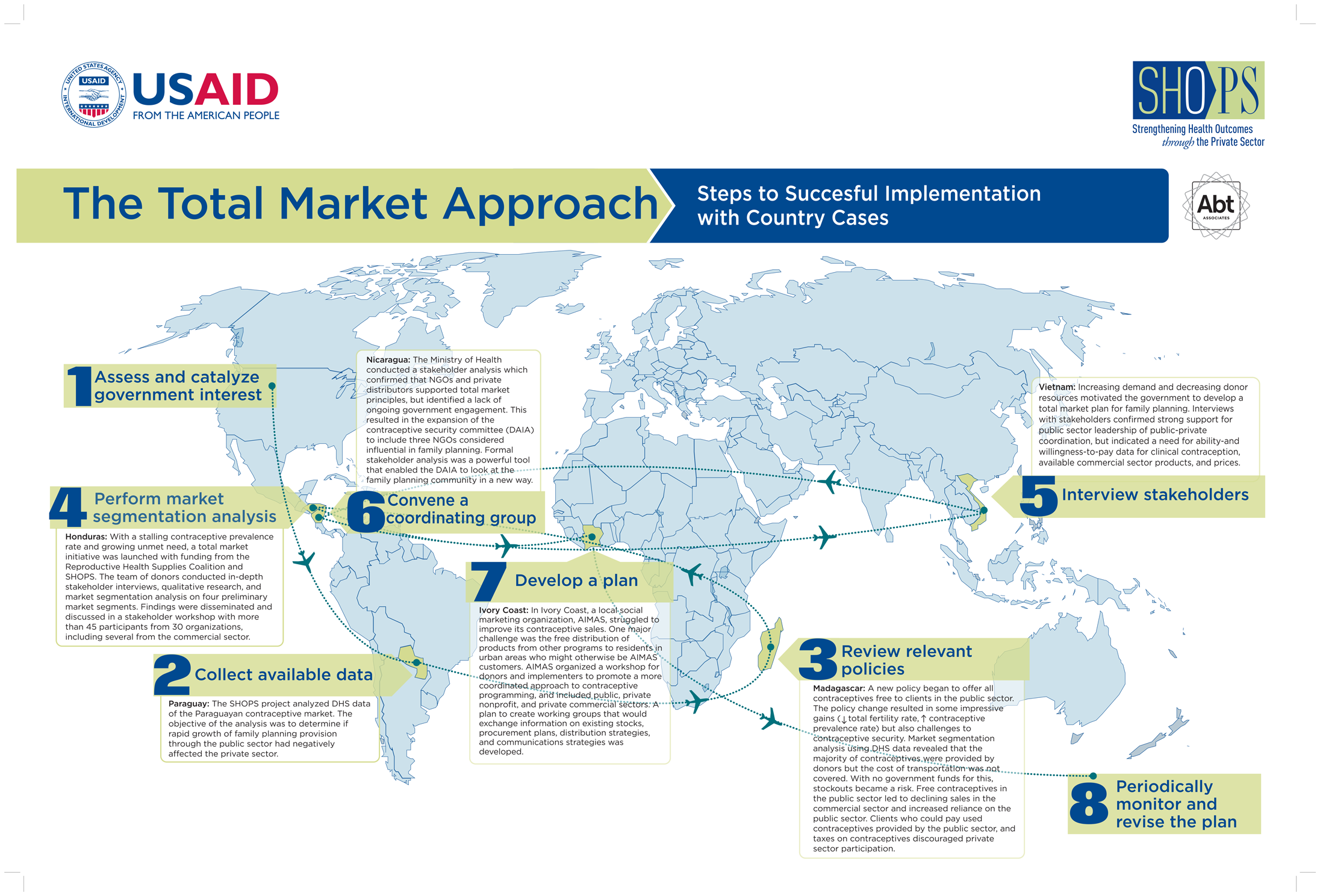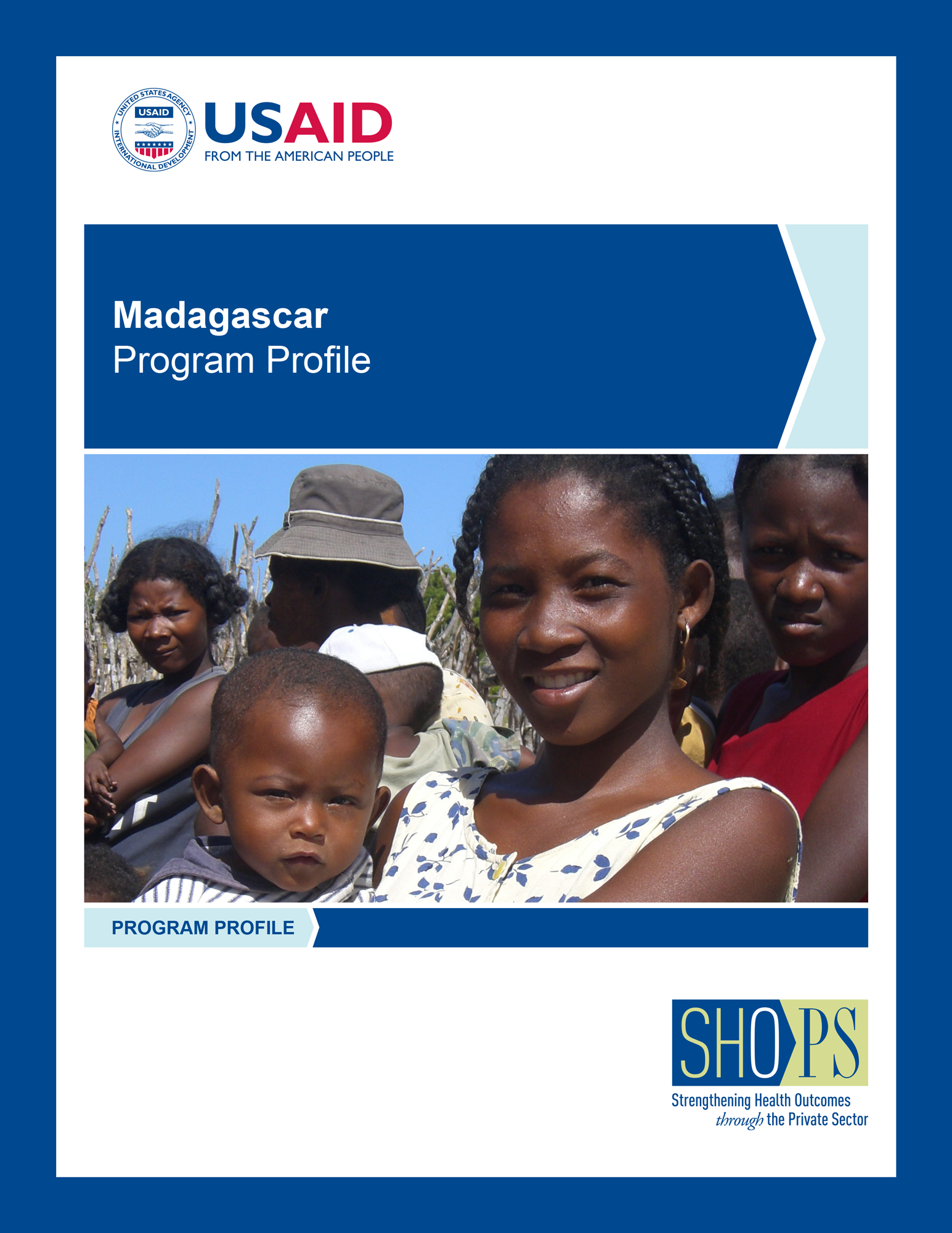
Resource Library
Pregnancy Tests Increase Contraceptive Clients among Health Workers in Madagascar
One challenge that community health workers face when they provide hormonal contraceptives to new clients is ruling out pregnancy. A randomized controlled trial in Madagascar found that offering the health workers pregnancy tests to distribute for free increases their number of new contraceptive clients.
Resource Type : Brief
Country : Madagascar
Year : 2015-04-17T00:00:00
Language : English
Project : SHOPS

Resource Library

Advancing Knowledge to Inform Program Design
Minki Chatterji, research director for the SHOPS project, oversees the project’s research portfolio, which includes global research, process and impact evaluations, formative research, provider censuses, and qualitative behavioral research. A demographer by training, she has more than 10 years of experience in global health research, including work on family planning and reproductive health, HIV and AIDS, and maternal and child health. In this video, Chatterji discusses the range of SHOPS research and how the project incorporates its research into its programs.
Resource Type : Video
Country : Bangladesh, Benin, Bolivia, Botswana, Ethiopia, Ghana, Haiti, India, Jamaica, Jordan, Kenya, Madagascar, Malawi, Mali, Namibia, Nepal, Pakistan, Paraguay, Peru, Philippines, Russia, Sénégal, Senegal, South Africa, Tanzania, UAR, Uganda, Zambia, Zimbabwe
Year : 2015-04-15T12:00:00
Language : English
Project : SHOPS

Resource Library
Assuring Access to Pediatric Zinc for Diarrhea Treatment Through the Private Sector in Madagascar
In December 2007, the USAID Mission to Madagascar invited the Social Marketing Plus for Diarrheal Disease Control: Point-of-Use Water Disinfection and Zinc Treatment (POUZN) Project, implemented by Abt Associates Inc. and Poopulation Services International, to develop a private sector program to increase access to diarrhea treatment products for caregivers of children under five through both commercial and community distribution channels. This country brief examines the results and lessons learned during the project’s implementation with respect to:
• Increasing access to pediatric zinc among caregivers of children under five in Madagascar
• Improving caregiver knowledge and treatment of childhood diarrhea
• Improving private provider knowledge and treatment of childhood diarrhea
Resource Type : Brief
Country : Madagascar
Year : 2010-10-01T00:00:00
Language : English
Project : SHOPS

Resource Library
Madagascar ORS Case Study
In 2009, the ORS coverage in Madagascar was less than half the global average at 16.9%. This case study examines the context within which ORS use was promoted in Madagascar looking at several factors: product, marketing, provider training, supply and financing. The case study articulated the following conclusions:
Context played an incredibly large role in determining the degree of success or failure to scale. Madagascar’s 2009 conflict resulted in reduced funding, supply chain interruptions and marketing delays. In addition, the poor infrastructure of the health system provided a ‘ceiling’ from the start of what was achievable, simply because large swaths of the population were inaccessible to the health system.
Supply and demand-side interventions were frequently out of sync with each other due to delays on both sides. Though delays were frequently attributable to the above contextual factors, both the chosen ‘mass media’ marketing strategies and the lack of local product sourcing reduced the amount of flexibility in the scale-up program and made it less resilient against contextual complications
Caregiver preferences were ignored until the most recent POUZN scale-up attempt—data from the 2009 DHS survey indicating that 59% of episodes do not reach a facility were indicative of how critical demand-side interventions are, yet this has been an area of neglect until very recently.
Resource Type :
Country : Madagascar
Year : 2012-11-01T00:00:00
Language : English
Project : SHOPS

Resource Library
Do Free Pregnancy Test Kits Increase the Number of Family Planning Clients Supplied by CHWs?
This presentation describes the SHOPS study on whether offering free pregnancy test kits to community health workers (CHWs), along with training on how to use the tests, increases the number of new hormonal contraceptive clients that CHWs supply contraceptives to, as well as the number of individual family planning counseling sessions. It was presented at the Making Impact Evaluation Matter: Better Evidence for Effective Policies and Programmes conference in Manila on September 4, 2014.
Resource Type : Presentation
Country : Madagascar
Year : 2014-09-08T00:00:00
Language : English
Project : SHOPS

Resource Library
Les tests de grossesse augmentent le nombre de clientes de contraceptifs auprès des agents communautaires à Madagascar
When offering hormonal contraceptives to new clients, community workers should ensure that clients are not pregnant. A randomized controlled trial in Madagascar finds that offering pregnancy tests to community workers to distribute free of charge increases the number of new contraceptive clients.
Resource Type : Brief
Country : Madagascar
Year : 2014-06-18T00:00:00
Language : French
Project : SHOPS

Resource Library
Initiatives de Marché Total pour la Santé de la Reproduction
Cette présentation documente le travail des membres du Groupe de travail de la Coalition sur les Produits de la Santé de Reproduction concernant les Approches utilisées dans la définition et la mise en oeuvre des initiatives de marché total (TMI). Une TMI en santé de la reproduction est un processus durant lequel les fournisseurs et les donateurs des produits et services de santé de la reproduction de tous les secteurs (public, le privé à but non lucratif, et commercial) élaborent un cadre stratégique commun pour maximiser l’utilisation des produits et services de santé de la reproduction pour améliorer l’équité, l’efficacité et la durabilité du système de santé. En plus de définir le concept en donnant des exemples pratiques, le document explique le moment où ces TMI doivent être mises en oeuvre, le processus de mise en oeuvre et les indicateurs devant être utilisés pour mesurer leurs succès.
Resource Type :
Country : Madagascar
Year : 2014-05-30T00:00:00
Language : French
Project : SHOPS

Resource Library
The Total Market Approach: Steps to Successful Implementation with Country Cases
This poster provides an explanation of the steps required to implement a total market approach for contraceptive products, including specific country cases where the approach was implemented. It was presentated at the International Conference on Family Planning during an evening technical session hosted by the SHOPS project on the total market approach.
Resource Type : Infographic
Country : Cote d’Ivoire, Madagascar
Year : 2013-12-09T00:00:00
Language : English
Project : SHOPS

Resource Library
Madagascar Program Profile
The SHOPS project worked with Marie Stopes Madagascar to implement a year-long program (October 2010 to September 2011) in Madagascar that aimed to (1) expand access to voluntary family planning through provision of long-acting and permanent methods via mobile outreach teams working across underserved regions and (2) increase the demand for quality reproductive health services by removing financial barriers through vouchers. This program profile presents the program context, goals, components, results, and the following lessons learned:
- Public-private partnership was key to increasing the use of LA/PMs through outreach
- Implants were the preferred method in outreach and voucher programs
- Strong demand creation was crucial to the success of the outreach and voucher programs
- Vouchers, when properly targeted, do not displace non-voucher clients
- For voucher programs, it is imperative to put robust monitoring and fraud controls in place to limit and avoid collusion and overcharging to clients
Resource Type :
Country : Madagascar
Year : 2013-03-29T00:00:00
Language : English
Project : SHOPS

Resource Library
Tanzania Zinc Case Study
This document is part of a series of fourteen case studies in eleven countries that have tried to scale up ORS and zinc. These case studies document both successful and unsuccesful programs and contribute to our understanding of efforts to deliver proven interventions for childhood diarrhea. They are relevant to the community of international agencies, policy makers, researchers, and donors. Countries included in the series are: Bangladesh, Guyana, India, Jordan, Madagascar, Malawi, Nepal, Senegal, Sierra Leone, Tanzania, and Trinidad and Tobago. In some cases a country may have two case studies, one on ORS and one on zinc.
Resource Type :
Country : Tanzania
Year : 2013-01-09T00:00:00
Language : English
Project : SHOPS
Pagination
- Previous page
- Page 4
- Next page


